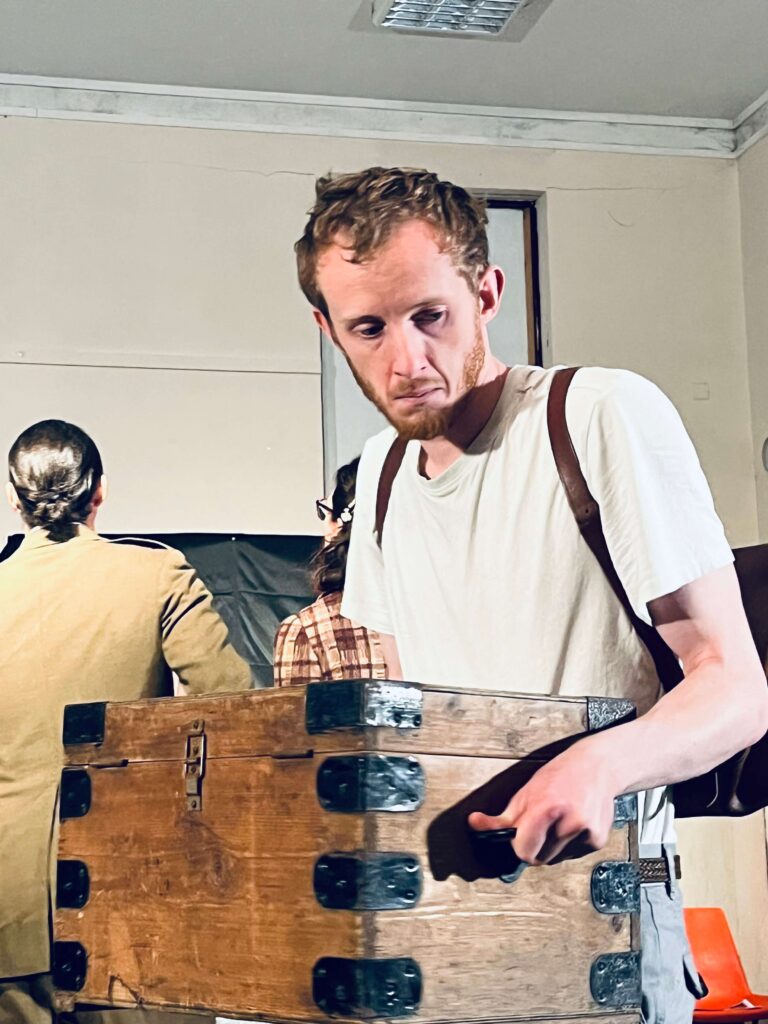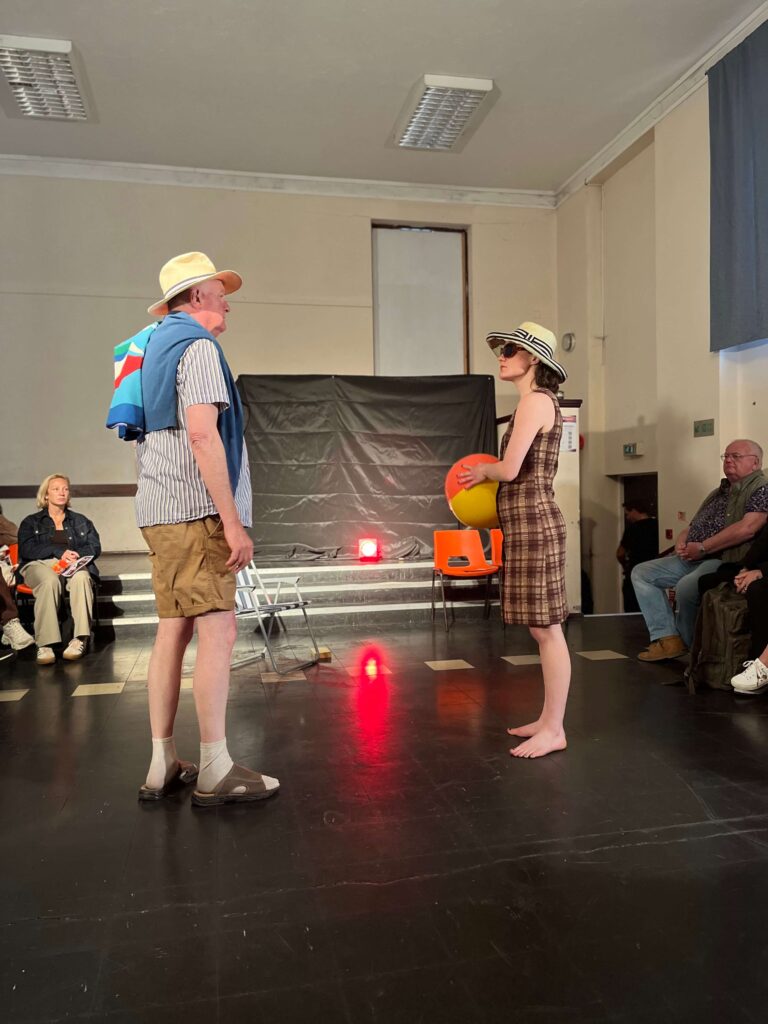Presented by Boarder Control at St Mary’s Church Hall as part of Brighton Fringe, Mummified is a brave and necessary reminder of the invisible scars that abuse within institutionalisation can leave behind. Inspired by real events in the UK, the play transports us to the late 1960s and tells the story of ‘Boy’, an eight-year-old boy who is suddenly taken away from his mother’s care and sent to a boys’ boarding school in the remote Peak District. His mother appears oblivious to the evil lurking within the institution’s walls.

The characters were played by a diverse cast, each actor bringing their own mastery to the mission of telling the story.
The question that triggers the narrative is: what could drive a mother to abandon her child to strangers? This question resonates with disturbing force: is it just the mother? What is the context surrounding her? Is it tiredness, a lack of self-confidence or desperation? Or perhaps it is the pressures of an era that gives less importance to these realities, ignoring the loving absence of the paternal role in the family unit and the uncertainty it brings to the destiny of the young protagonist?

The title, ‘Mummified’, is deeply evocative. The boarding school experience is presented as both physical confinement and emotional petrification. Over ten years, we witness the withering of Boy’s innocence, leaving behind an adult scarred by the experience. He is unable to form healthy attachments and is prone to inflicting the same damage he suffered. His subsequent life becomes a chaotic succession of “havoc and harm”, affecting both those who try to get close to him and himself.
The play does not only describe the abuse itself; it also explores its devastating long-term consequences. The protagonist’s sobriety is presented as merely the beginning of a ‘long and arduous’ journey back to a home he years for, but a reunion with which is by no means guaranteed. This journey becomes a powerful metaphor for the healing process, fraught with uncertainty and internal obstacles mostly generated by a social context that questions and dismisses the sexual abuse experienced simply because it is uncomfortable.

Against this backdrop of darkness and desolation, the mention of ‘allied wings’ and the fervent question of whether ‘the birds will come’ offers a glimmer of hope, albeit tinged with uncertainty. These symbolic elements imply the necessity of external intervention, a redemptive force capable of liberating the protagonist from the invisible shackles of his past. Do they represent providence, unexpected goodness, or perhaps one’s own capacity to find inner freedom? The answer hangs in the air, inviting reflection from the viewer.
While this review builds on the play’s premise, staging it at St Mary’s Church Hall added an extra layer of intimacy — and perhaps claustrophobia — to the narrative, intensifying the protagonist’s sense of insolation.
‘Mummified’ is not an easy play to watch. It tackles a painful subject with honesty and bravery, inviting the audience to confront a grim reality. However, its exploration of resilience, hope, and resignification makes it a meaningful and possibly cathartic theatrical experience. We recommend this production to anyone willing to engage with difficult yet essential narratives that remind us the significance of historical memory and the imperative to validate these accounts.
These are lived realities that, when someone shared, require not justification but appreciation as acts of courage. Using art as a means of granting dignity to these life stories is deeply vindicating. Personally, experiencing these events enables us to feel less like victims and more like creators of our own lives.
In addition to the play, we were invited to take part in a conversation with various organisations dedicated to safeguarding the quality of life of people affected by this reality. This conversation was a hug for the audience. Thank you to the company for this activism and the institutions involved.
Brighton Fringe: Tickets
